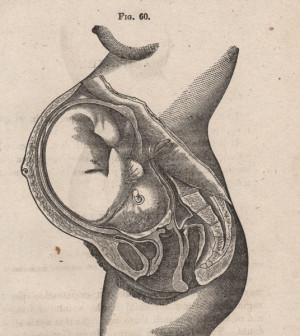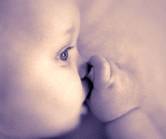- 8 Ways to Increase Dopamine Naturally
- 7 Best Breads for Maintaining Stable Blood Sugar
- Gelatin vs. Collagen: Which is Best for Skin, Nails, and Joints?
- The Long-Term Effects of Daily Turmeric Supplements on Liver Health
- Could Your Grocery Store Meat Be Causing Recurring UTIs?
- Are You Making This Expensive Thermostat Error This Winter?
- Recognizing the Signs of Hypothyroidism
- 10 Strategies to Overcome Insomnia
- Could Artificial Sweeteners Be Aging the Brain Faster?
- Techniques for Soothing Your Nervous System
Bed-Sharing With Babies Tied to More Breast-Feeding


TUESDAY, Sept. 24Mothers who sleep with their babies are more likely to breast-feed them and breast-feed them longer, a new study finds. Even so, the authors advise against co-sleeping.
The risk of sudden infant death syndrome (SIDS) or suffocation associated with co-sleeping is far greater than any benefit of promoting breast-feeding, the researchers say.
“What we found, which was kind of what we expected, was the longer the mother bed-shared the longer she was likely to breast-feed,” said lead researcher Dr. Fern Hauck, a distinguished professor of family medicine and director of the International Family Medicine Clinic at the University of Virginia, in Charlottesville.
“We definitely want mothers to breast-feed. It’s the healthiest and most nutritious way for infants to get fed,” she said. “But, the other side of the coin is, we know that bed-sharing has its hazards, specifically related to sudden infant death syndrome or suffocation.”
The evidence of the risk is strong even among women who are breast-feeding, Hauck said. “Looking at the balance of things, we are still recommending that mothers do not bed-share even though it has an influence on breast-feeding,” she said.
Hauck suggested that babies “should sleep close to mom, but not in the same bed.”
The report was published Sept. 23 in the online edition of JAMA Pediatrics.
“Most pediatricians would agree with the conclusion of the study,” said Dr. Jose Rosa-Olivares, medical director of the pediatric care center at Miami Children’s Hospital.
Given the risk of SIDS and suffocation, it is difficult to support recommendations that mothers should bed-share with their infant, said Rosa-Olivares, who was not involved with the new study.
“The dangers of SIDS and suffocation are more important than the benefit of breast-feeding,” he said. “Breast-feeding is extremely important, but to put the child at risk is not worth it.”
To see whether bed-sharing increased the odds of breast-feeding and feeding for a longer time, Hauck’s team used data from the study on infant feeding practices that followed pregnant women through their infants’ first year of life.
Of about 1,800 women in the study, those who bed-shared the most were more likely to breast-feed and breast-feed for the longest amount of time, compared to those who bed-shared for the least amount of time or didn’t bed-share at all.
Moreover, women who had more education, were white, had breast-fed before, had planned to breast-feed and hadn’t returned to work in the first year after having a baby breast-fed the longest.
While some groups like the La Leche League support bed-sharing to promote breast-feeding for some mothers, the American Academy of Pediatrics advises against it and supports separate, but nearby, sleeping, Hauck said.
Although the benefits of breast-feeding are clear and while most women say they intend to breast-feed, less than one-third actually do, according to a study published last year in the July issue of Pediatrics.
The World Health Organization and the American Academy of Pediatrics recommend that babies be breast-fed exclusively for the first six months of their lives. Previous research has found that only 35 percent of American infants are breast-fed exclusively for three months, and only 15 percent for the recommended six months, the authors of that study noted.
More information
For more about breast-feeding, visit the American Academy of Pediatrics.
Source: HealthDay
Copyright © 2026 HealthDay. All rights reserved.










